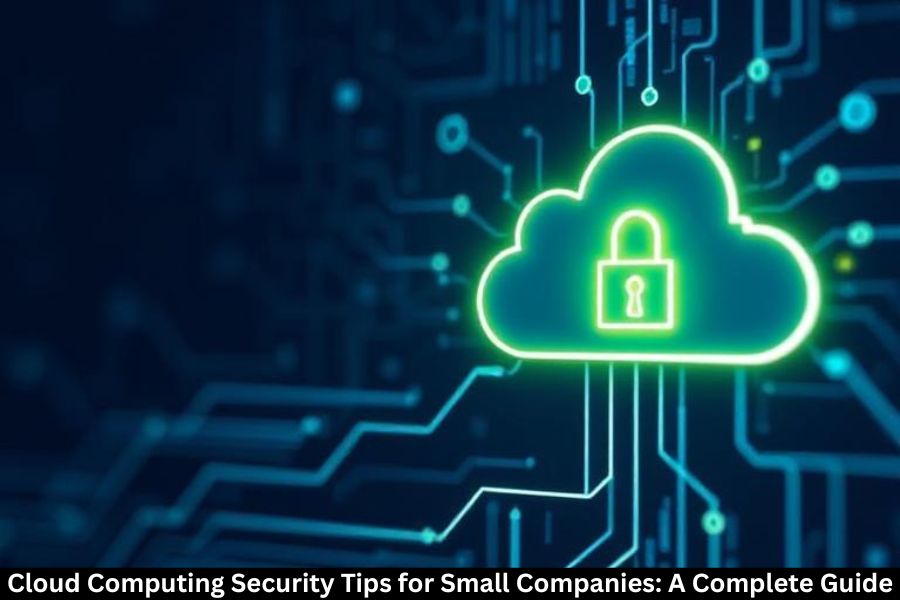Cloud computing has completely changed the way small businesses operate. From affordable storage to powerful applications, the cloud makes it easier for companies to compete with larger players. But here’s the catch—without proper security, the same cloud that empowers your business could expose it to serious risks.
So, how can small companies enjoy the benefits of cloud computing without losing sleep over data breaches? That’s exactly what we’re going to explore.
Understanding Cloud Computing Security
At its core, cloud security is all about protecting data, applications, and infrastructure hosted on cloud platforms. Unlike traditional systems, security in the cloud follows a shared responsibility model—meaning the provider secures the infrastructure, but the customer (you) must secure your data, user access, and usage.
Think of it like renting an apartment. The landlord secures the building, but it’s up to you to lock your doors and protect your valuables.
Benefits of Secure Cloud Computing
When done right, secure cloud computing offers massive advantages:
- Cost savings – Avoids expensive breaches and fines.
- Business continuity – Protects operations during disasters.
- Customer trust – Builds credibility when clients know their data is safe.
Top Security Challenges Small Businesses Face
Small companies often believe cybercriminals won’t target them, but that’s a dangerous myth. In fact, attackers often see small businesses as low-hanging fruit. The most common challenges include:
- Data breaches that expose sensitive information.
- Insider threats from careless or malicious employees.
- Weak passwords that are easy to guess or crack.
- Compliance issues when regulations aren’t followed.
Practical Cloud Security Tips for Small Companies
Here are some actionable steps you can start implementing right now:
- Use strong authentication methods to protect accounts.
- Keep systems updated to close security holes.
- Encrypt sensitive data at all times.
- Back up data regularly to reduce downtime risks.
Implementing Access Control
Not everyone in your company needs access to everything. Apply the principle of least privilege, where users only get the access they absolutely need.
Using role-based access control (RBAC) makes managing permissions much easier. Plus, tracking user activity can help you spot unusual behavior early.
Secure Password Policies
Passwords are your first line of defense. Weak ones are like leaving your front door wide open.
- Enforce long, complex passwords.
- Encourage employees to use password managers.
- Add an extra layer of security with multi-factor authentication (MFA).
Data Encryption Best Practices
Encryption acts like a digital safe for your data.
- Use encryption at rest (stored data) and in transit (data moving online).
- Always use SSL/TLS certificates for secure data transfer.
- Store and manage encryption keys safely.
Regular Security Audits
Security isn’t a one-time setup. Regular audits ensure your systems stay strong against new threats.
You can do internal audits with your IT team or hire external experts for deeper insights. The key is to find weak spots before hackers do.
Employee Training and Awareness
Your employees can be your strongest defense—or your biggest risk. One careless click on a phishing email can bring your whole system down.
That’s why cybersecurity awareness training is a must. Teach staff how to recognize scams, handle data properly, and report suspicious activity.
Choosing the Right Cloud Service Provider
Not all cloud providers are created equal. Look for:
- Security certifications (like ISO 27001).
- Compliance with regulations (like GDPR, HIPAA).
- Clear service level agreements (SLAs) for accountability.
Compliance and Legal Considerations
Failing to comply with data protection laws can lead to heavy fines. Small businesses must stay up to date with laws like GDPR (Europe) or HIPAA (healthcare in the U.S.).
Compliance isn’t just about avoiding penalties—it’s about showing customers you take their privacy seriously.
Disaster Recovery and Incident Response
No matter how secure you are, incidents can happen. That’s why you need a disaster recovery plan.
- Keep multiple backups in different locations.
- Create a response protocol to act quickly after a breach.
- Practice recovery drills so your team knows exactly what to do.
Leveraging Security Tools
Thankfully, you don’t have to do everything manually. Cloud providers and third-party tools offer:
- Firewalls and intrusion detection systems.
- Cloud monitoring tools that alert you about suspicious activity.
- AI-powered threat detection for faster response.
Future of Cloud Security for Small Companies
Cloud security is always evolving. Some future trends to watch include:
- AI-driven security tools for smarter threat detection.
- Zero trust models that verify everything, always.
- Increased focus on privacy-first frameworks.
Small companies that adapt early will stay ahead of the curve.
Conclusion
Cloud computing is a powerful tool for small businesses, but only if it’s used wisely. By adopting strong security practices—like access control, encryption, employee training, and disaster recovery—you can enjoy all the benefits of the cloud without the risks.
Remember, cybercriminals don’t care about the size of your company. They only care about opportunities. Don’t give them one.
FAQs
Why is cloud security important for small businesses?
Because small businesses are prime targets for hackers who see them as easier to breach compared to big corporations.
How can I protect my data in the cloud?
Use encryption, strong passwords, multi-factor authentication, and regular backups.
Do small companies need compliance certifications?
Yes, especially if they handle sensitive data like health or financial records.
Is multi-factor authentication really necessary?
Absolutely. It adds an extra layer of protection even if passwords are compromised.
What’s the first step to improve cloud security?
Start with employee training and secure password policies—they’re often the weakest links.



